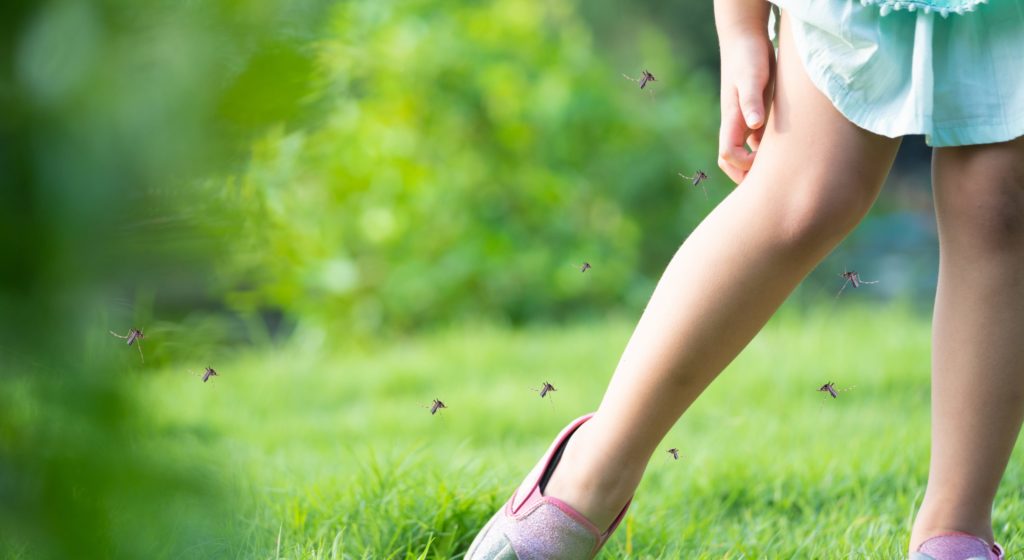
Health
- SINGAPORE
Zika Virus Symptoms, Cause, And Treatment In Singapore
Detect + Relieve + Prevent

With the news of the latest Zika virus cluster confirmed in Singapore – folks are trying to understand what it is and what they can do about it. Our handy guide is below – hope it is helpful!
So what is the Zika virus and why the big fuss? Zika virus infection, discovered in the 1940s, is transmitted by the bite of an infected Aedes mosquito. The Aedes mosquito is also a known carrier of the Dengue and Chikungunya viruses. It is generally known as a mild disease and was never known to potentially cause any long lasting harm. However, the Zika virus infection may cause microcephaly in the unborn foetuses of pregnant women. Microcephaly is a rare neurological condition that manifests itself as birth defects in which a baby’s head size is disproportionately smaller than the rest of his/her body. More often than not, a smaller head correlated to having an incomplete brain development, may progress to developmental and behavioral issues in these little bubs.
With the rising numbers of those infected with the Zika virus in Singapore, there is an urgent need for the general public and especially pregnant moms to recognize the dangers of this disease. Currently, there is no known vaccine or treatment so the key is to prevent its spread, island-wide.
-

Most people infected with the Zika virus don’t develop any symptoms and for those who do, they are very mild. A lot of times, these symptoms go unnoticed. They usually develop within 3 to 12 days after the mosquito bite and often last between 4 to 7 days.
The symptoms for Zika include:
- Mild Fever
- Rashes
- Headaches
- Muscle Pain
- Joint Pains
- Conjunctivitis (eye inflammation)
If you or your kiddos develop these symptoms within 2 weeks after traveling to any Zika reported areas, please head straight to your GP or health-care professional for a thorough check.
-
At present, the only trustworthy test available for Zika is the reverse transcriptase-polymerase chain reaction (RT-PCR) test, which sieves out genetic material of the virus in clinical specimens such as blood and urine. The RT-PCR test is only able to detect Zika infection within 5 to 7 days of acute infection, and not after, meaning that after the 7-day period, a person is said to no longer to be carrying the virus. Therefore, previously infected woman who gets pregnant after clearing the infection will not pass the virus onto her foetus.
-
1. Use effective mosquito repellents, wear repellent patches or wristbands.
2. Apply repellents properly in order for it to be effective.
• Repellents should be applied after sunscreen (otherwise your SPF may mask it).
• Don't wear repellent under clothes, but instead use one that can be sprayed over and won’t damage your clothes.
• Avoid spraying on cuts and wounds.
• Always spray your feet and ankles. The Aedes mosquito that carries the Zika has a particular attraction to feet.3. Spray repellent on your hands before dabbing it onto your little ones’ skin. Don’t rub!
• Avoid eyes and mouth and use it sparingly around ears.
• For infants and tots, don't use repellent with 30% or higher concentration of DEET. Follow re-application instructions on the product carefully.
• Repellent should not be used on infants less than 2 months old (protect them with mosquito net or long-sleeved clothing where possible).4. Wear long sleeved tops, bottoms and hats.
• Clothing containing permethrin, a synthetic insecticide, is effective and safe for pregnant moms and bubs.
• Wear shoes and socks.
• Mozzies can easily bite through Spandex tights and yoga pants, so avoid those.
• Wear light-colored clothing as mosquitoes are thought to be attracted to darker colors, especially blue.5. Do the 5-step mozzie wipeout.
• Eliminate all water (even if it’s only 2 tablespoon full) by turning cups, pails, flower pots, bottles upside down.
• Use mosquito coils and sprays for outdoor areas.6. Get fit indoors.
• Our body naturally emits both carbon dioxide and heat, which attracts mozzies.
• Stay in cool areas and use mozzie screens to keep them at bay.7. Avoid travelling to all Zika affected areas.
• Visit www.cdc.gov/zika/geo periodically for an updated list of affected countries with active Zika virus transmission.8. Use condoms during intercourse.
• To prevent further transmission of the virus and adverse effects on pregnant moms, all returning travelers of affected areas should use a condom during intercourse or abstain from any sexual activities for at least 8 weeks.
• The World Health Organization’s advice is that sexual partners of pregnant women should use a condom or abstain for at least the duration of the pregnancy. -
www.who.int/en
www.cdc.gov/ncbddd/birthdefects/microcephaly.html
www.gov.sg/factually/content/5-things-to-know-about-zika-virus
www.moh.gov.sg/content/moh_web/home/pressRoom/Current_Issues/2016/zika-virus/faqs.html
www.gov.sg/microsites/zika
www.healthxchange.com.sg/healthyliving/SpecialFocus/Pages/zika-virus-things-you-must-know.aspx
Want More?
Little Steps Asia knows what families need.
Sign up for our email newsletters to get the most out of Asia!
-
Singapore
Eco-Kids Extravaganza: Singapore’s First Sustainable Kids Market At Marina Square!
Promote Sustainable Living And Raise Funds For Underprivileged Children2024 May 25 - 2024 May 26 -
Singapore
Unveiling Singapore’s Rich Heritage: Explore Singapore HeritageFest 2024!
An Islandwide Exploration Of Singapore's Heritage2024 May 01 - 2024 May 26 -
Singapore
Singapore Open Days 2024 – Singapore Primary And Secondary School Open House, Virtual And School Tours
School Open House, Virtual And School Tours2024 Jan 01 - 2024 Dec 31 -
Singapore
Roarr! Dinosaur Adventure Park 2.0: Thrilling Indoor Playground At Marina Square, Singapore!
For The Dino Enthusiast!2024 Apr 12 - 2024 Jun 30 -
Singapore
INVITE: Attend An Open Day At SJI International Elementary School Singapore
Save The Date: April 302024 Apr 30 - 2024 Apr 30 -
Singapore
Unlock Your Imagination: Legoland® School Challenge 2024 Now Open For Registration Across Asia!
Spark Creativity With LEGOLAND® Challenge2024 Apr 15 - 2024 Jun 21 -
Singapore
Immerse In Mandarin Magic: Gateway Theatre Presents ‘The Magic Paintbrush’ For Children – Experience The Enchantment!
Dive into Mandarin Magic Today!2024 May 04 - 2024 May 05 -
Singapore
Splashing Good Fun: Wild Wild Wet Hosts First Songkran Kids Festival In Singapore
Join Water Fights, Dance Parties, DJ Tryouts And More!2024 Apr 01 - 2024 Apr 30 -
Singapore
Top Family-Friendly Singapore Events: April 2024 Activities In Singapore
Explore Kid-Friendly Fun and Adventures All Month Long2024 Apr 01 - 2024 Apr 30 -
Singapore
Magical Asia Premiere: Harry Potter: Visions Of Magic Arrives At Resorts World Sentosa Singapore In Fall 2024
Join The Waitlist To Receive First Access To Pre-Sale Tickets
The Presses
SIGN UP
Singapore Tips, Deals + Events.
Got kids? Little Steps Asia gives you the scoop on all the things to do and see with babies, toddlers, and kids in Hong Kong, Singapore, Kuala Lumpur, Bali, Jakarta, Macau, and beyond. From family-friendly hotels, kids and baby shops, the best schools and after school activities, pregnancy tips and meet-ups and more – we have you sorted.
Sign up to receive the free Little Steps email newsletter packed with news, offers, and hidden treasures for Singapore families.

© 2024 Little Steps Asia. All rights reserved.


















